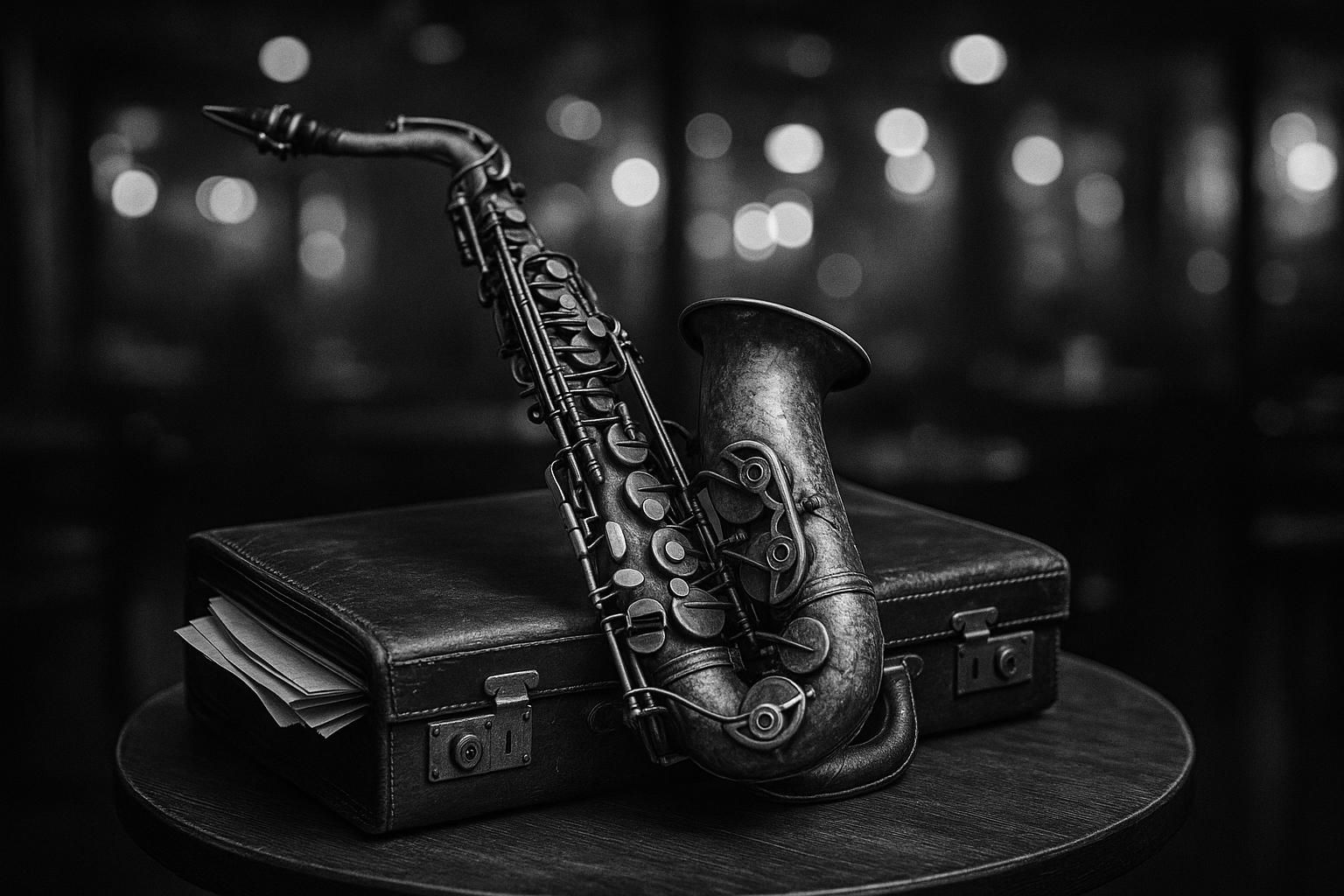Wally Houser, who has died aged 90, played a quietly pivotal role in British jazz: a practising solicitor by trade and an alto saxophonist by temperament, he was one of the handful of figures without whom Ronnie Scott’s club might not have endured. According to The Guardian, his legal work, musicianship and personal stewardship of visiting artists made him indispensable to the Soho institution and to the wider scene it helped sustain.(theguardian.com)
Houser first encountered Ronnie Scott at a gig in Manchester in the late 1950s and, the Guardian reports, acted for him when he signed the lease on the original Gerrard Street premises in 1959. He continued to handle the club’s legal affairs — largely pro bono — and was, the obituary adds, the person who identified Ronnie Scott after the musician’s death in 1996. Those close ties placed him at the intersection of law, hospitality and culture in a decade when the club was establishing itself as Britain’s premier modern‑jazz venue.(theguardian.com)
Part of Houser’s less visible contribution was practical and diplomatic: he played a role in resolving the standoff between the Musicians’ Union in the UK and its US counterparts that, for a time, made it hard for British clubs to book top American artists. English Heritage’s account of Ronnie Scott’s history notes that an exchange arrangement from 1961 opened the way for more regular US visits, and The Guardian credits Houser with helping to navigate the legal and bureaucratic obstacles that preceded that thaw.(english-heritage.org.uk, theguardian.com)
Houser’s custodial duties sometimes read like scenes from the club’s colourful archive. The Guardian recounts a famous episode involving the American tenor Ben Webster — booked for a Paris date while midway through a Ronnie’s residency — in which Houser found Webster slumped in a train carriage, revived him and prevented what might have been an arrest by a railway policeman. “Not the Ben Webster, the saxophonist?” the policeman is reported to have gasped, and after that discovery helped load Webster onto a trolley and into a taxi. That anecdote, and many others, also appear in oral‑history collections compiled by colleagues such as Spike Wells, where Houser is remembered as both a raconteur and an informal carer for visiting players.(theguardian.com, spikewells.co.uk)
Beyond anecdotes, Houser’s practical contributions are recorded in other contemporary sources. UK Jazz News and festival and film coverage note his long service as in‑house legal counsel to Ronnie Scott and Pete King — a role that, according to UK Jazz News, continued until the club’s sale in 2005 — and his participation in the documentary Ronnie’s, in which he appears as one of the people who helped keep the club functioning through testing times. The Arts Desk review of the film highlights his presence among the lesser‑known figures whose work was essential to the club’s survival.(ukjazznews.com, theartsdesk.com)
Houser’s early life was rooted in Manchester. He was born Walter Maurice Houser on 26 November 1934, the son of Isaac, a bookmaker, and Marjorie (née Ashworth), a pianist, and began legal studies at Manchester University in the early 1950s. To finance his education he played in bands; The Guardian records that one of those early groups was at one point managed by Jimmy Savile. He later practised with Philip Ross solicitors in London, where his clients included actors and musicians, and in 1971 he married the actress Geraldine Moffat; biographical databases list the couple’s two sons, Sam and Dan Houser.(ukjazznews.com, theguardian.com, theartsdesk.com)
Music remained a constant. For many years Houser held the alto sax chair in the Stan Reynolds Orchestra (now the Barnes Big Band), rehearsing in west London and serving as an elder statesman to several generations of players. UK Jazz News’ tribute describes him as a linchpin who took responsibility for practical matters — from booking halls to being first to set up — and quotes bandmates who emphasise his dry humour, integrity and devotion to the music.(ukjazznews.com)
There is a modest discrepancy in published accounts of the precise date of his death. The Guardian’s obituary, published on 10 August 2025, notes only that he “has died aged 90”; a detailed tribute on UK Jazz News gives a date of death as 17 May 2025. Where sources differ, the earlier specialist obituary provides the specific date. Both, however, underline the same point: Houser’s importance to the community and the depth of the loss felt by colleagues and friends.(theguardian.com, ukjazznews.com)
Wally Houser’s contribution was not theatrical or headline‑seeking: it was the steady, practical, sometimes unseen work that allowed artists to do their best. English Heritage’s account of Ronnie Scott’s — and the club’s later move to Frith Street in 1965 — places Houser’s service in the context of a venue that became a national monument of British jazz, and film and oral‑history projects have preserved many of his reminiscences for posterity. Those who played beside him and those he advised remember him as a trusted friend, a reliable hand and an inexhaustible source of stories.(english-heritage.org.uk, theartsdesk.com, spikewells.co.uk)
He is survived by his wife, Geraldine Moffat, and their children, Sam and Dan. Tributes from bandmates and fellow musicians carried on specialist sites and in the press speak of a life lived at the service of music — legally, practically and humanely — and of a man whose modest, steady stewardship left a disproportionate mark on British jazz.(theguardian.com, ukjazznews.com)
📌 Reference Map:
##Reference Map:
- Paragraph 1 – [1], [3]
- Paragraph 2 – [1]
- Paragraph 3 – [1], [4]
- Paragraph 4 – [1], [7]
- Paragraph 5 – [3], [5]
- Paragraph 6 – [1], [6], [3]
- Paragraph 7 – [3]
- Paragraph 8 – [4], [5], [7]
- Paragraph 9 – [1], [3]
Source: Noah Wire Services
